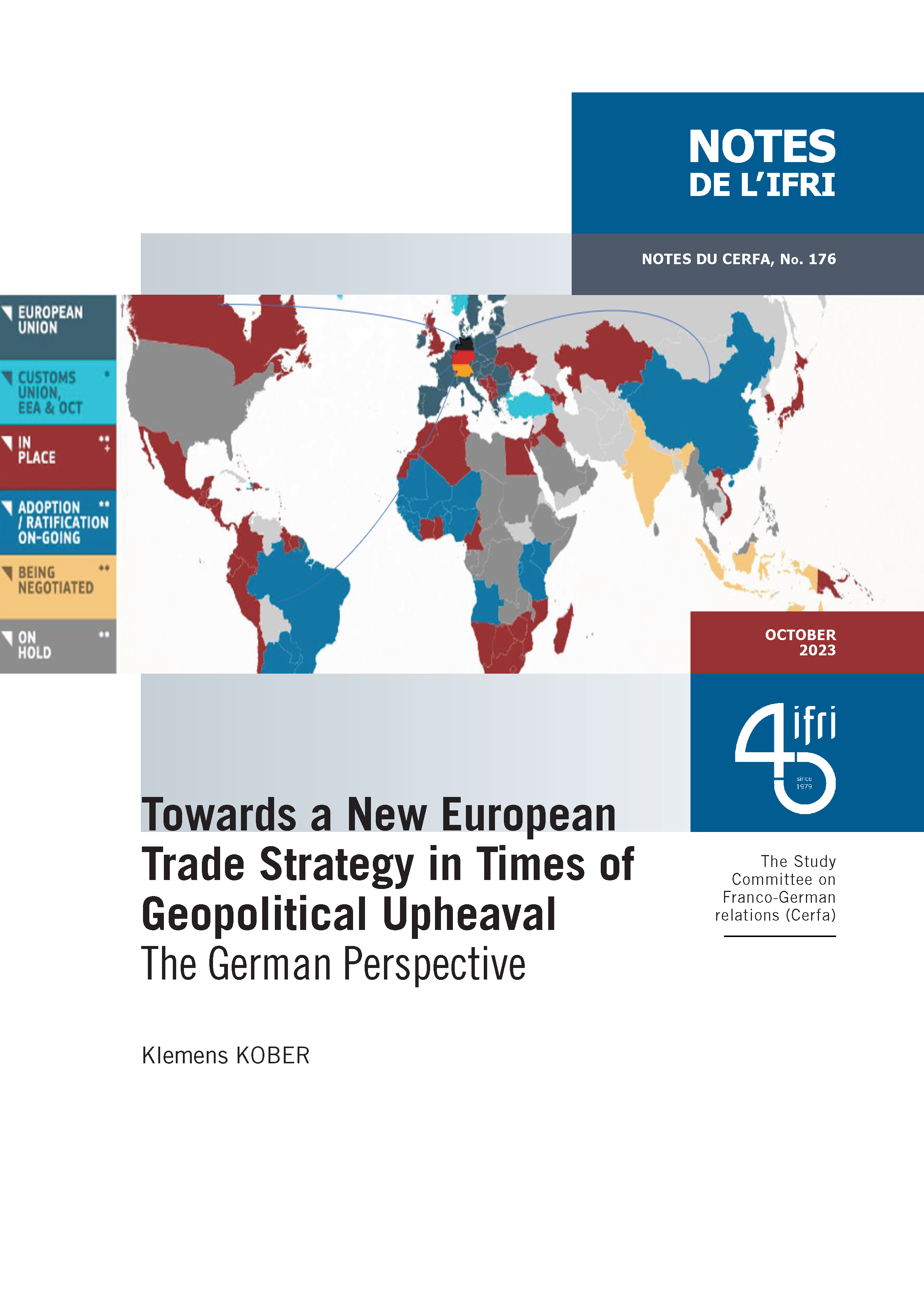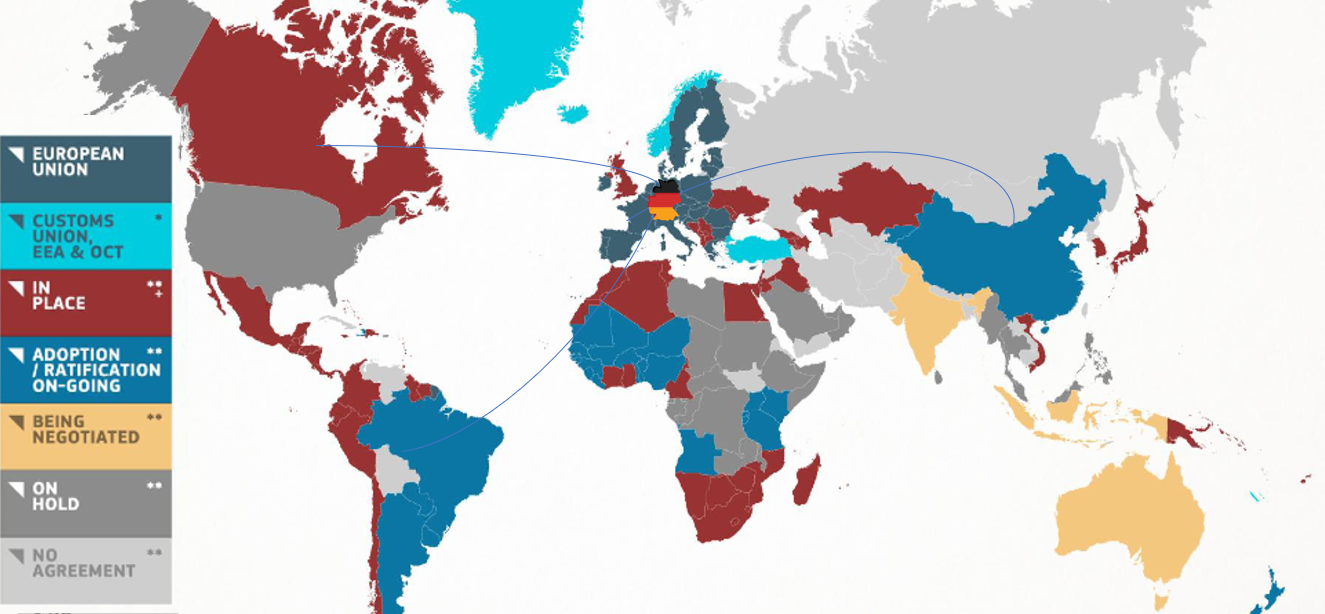Towards a New European Trade Strategy in Times of Geopolitical Upheaval: The German Perspective

As one of the most successful trading blocs, the EU sees itself confronted with the erosion of the global rules-based trading system and trade becoming increasingly weaponized.

The ongoing US-China decoupling and the Russian war in Ukraine recently reinforced the debate about European sovereignty and economic security with wide-ranging consequences for the EU’s economic model and its trade relations with third countries. Recalibrating the degree of the EU’s economic openness involves new approaches regarding multilateralism, bilateral trade agreements and autonomous trade instruments.
This paper looks at how Germany as an internationally highly interconnected country is directly impacted by all these developments and thus tries to both adapt its own position and help shape a new European trade strategy. This will be of high relevance for both the new European Commission and European Parliament after the upcoming European elections in 2024.
Klemens Kober is Director Trade Policy, EU Customs, Transatlantic Relations at the German Chamber of Commerce and Industry (DIHK) as well as EU-representative of the Association of the German Trade Fair Industry (AUMA).
The views expressed in this paper are those of the author only.
>> >> See also the publication by Marie Krpata and Ana Helena Palermo: available in French and German (pdf):

Available in:
Themes and regions
ISBN / ISSN
Share
Download the full analysis
This page contains only a summary of our work. If you would like to have access to all the information from our research on the subject, you can download the full version in PDF format.
Towards a New European Trade Strategy in Times of Geopolitical Upheaval: The German Perspective
Related centers and programs
Discover our other research centers and programsFind out more
Discover all our analysesThe Franco-German Brigade and the Revival of European Defense
One thing has been clear since Donald Trump's return to the White House: the very existence of the European unification project is threatened. Unless it develops a sovereign defense policy to counter the war in Ukraine and the weakening of American security guarantees, the European Union will continue to see its internal cohesion and external attractiveness wane.
Friedrich Merz and the Zeitenwende 2.0. A “New Era” for Transatlantic Relations?
On February 23, 2025, almost 60 million voters were called upon to elect a new Bundestag. These elections will also give rise to a new government in Europe's largest economy.
After the Elections: Germany in Search of Shaken Stability?
With a voter turnout of 82.5%, Germany recorded its highest participation since 1987—an increase of 6.1 percentage points compared to 2021. As in the previous election, the high turnout particularly benefited the Alternative for Germany (AfD), which was able to mobilize many former non-voters. Many voters sought to punish the outgoing government with their ballots, as its approval rating had dropped to just 14% before the coalition broke apart in November 2024. Germany is now very likely heading toward a grand coalition between the CDU/CSU and the SPD, with exploratory talks having begun on February 28.
The German Greens as an Alliance Party: The End of an Illusion?
At the Wiesbaden Congress in November 2024, Robert Habeck, currently Minister for the Economy and Climate, was nominated as the Green Party’s candidate for the Chancellorship in the early parliamentary elections on February 23, 2025. The party, founded 45 years ago, is now firmly established in the German political landscape. Wishing to turn the page on an unloved ‘‘traffic light’’ coalition, the party is banking on a personal campaign and an optimistic discourse based on the energy transition and social justice.









